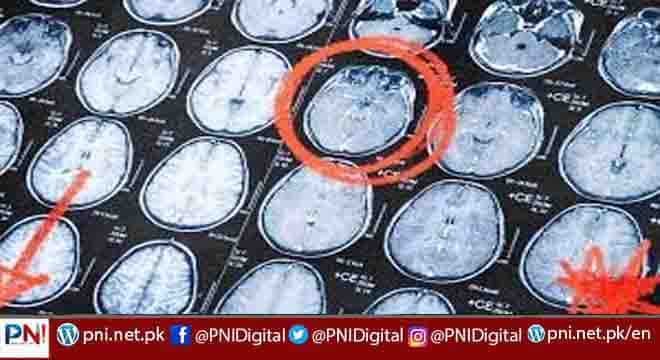Islamabad, December 26, (ONLINE): A new study shows that pulses of minimally invasive ultrasound waves improve the quality of life for people living with Parkinson’s disease by immediately and significantly reducing tremors.
The study involved a minimally invasive procedure that offers significant benefits over some other treatments that carry higher risks.
Dr. Federico Bruno, a radiologist in the Department of Biotechnological and Applied Clinical Sciences at the University of L’Aquila in Italy, led the research.
The procedure uses a technology called magnetic resonance-guided focused ultrasound (MRgFUS) that works by focusing sound energy beams to eradicate a small part of the thalamus in the brain.
Although a procedure called deep brain stimulation has been successful in some people, it carries potential risks, such as bleeding and infections.
Deep brain stimulation requires a surgical procedure, which involves a surgeon implanting a small electrode into the brain. The implant connects with a pacemaker-like device in the chest.
MRgFUS does not require an incision and has far fewer inherent risks.
The device works by relieving tremors on the opposite side of the body to the treatment point. For example, tremors on the right side of the body respond to the treatment on the left side of the brain, and vice versa.
Dr. Bruno and his team presented their findings at the Radiological Society of North America 105th Scientific Assembly in Chicago, IL.
The study involved 39 people with an average age of 64.5 years old. All the participants had experienced disabling tremors and had not responded to other treatments.
Of the 39, 21 had Parkinson’s disease, and 18 had essential tremor. All of the participants had been experiencing symptoms for an average of over 10 years.
The results of the study were very promising — almost the entire group (37 out of 39) saw “substantial and immediate” improvement in their tremor activity.
The procedure had several advantages over deep brain stimulation, in terms of the risks involved and how fast the treatment worked.
“Another advantage is the immediate effect this treatment provides, unlike deep brain stimulation, which requires a break-in period for the electrostimulation,” says Dr. Bruno.
“Additionally, treatment with MRgFUS requires shorter hospitalization and is a fairly well tolerated procedure even by more fragile patients.”
Parkinson’s is a serious brain disorder
While Parkinson’s disease typically starts gradually, it tends to worsen over time. According to the National Institute on Aging, Parkinson’s disease is a brain disorder characterized by tremors, stiffness, walking, balance, and coordination.
The risk of Parkinson’s disease increases with age, and more men are affected than women. Typically, the onset of the disease is at around age 60, but in some cases, symptoms can appear as early as 50.
Symptoms typically include trembling in the hands, arms, legs, jaw, or head. Some people experience trunk or limb stiffness, slower movements, and reduced balance and coordination, which can sometimes lead to falls.
Other symptoms can include depression, problems swallowing, issues speaking, urinary problems, constipation, and problems with sleeping. Some people report a decreased ability to smell.
Some people develop Parkinson’s disease due to genetics, but most of the time, it develops randomly and does not usually run in families.
This study had exciting results.
While the technique is available for some people today, the therapy is currently only available in a few sites around the world. However, Dr. Bruno hopes their study, and others like it will lead to more MRgFUS sites becoming available.
“Few patients know of this treatment option so far, and there are not many specialized centers equipped with the required technology,” Dr. Bruno explains.
“The clinical application of this technique for neurological diseases is an absolute novelty — the clinical use was approved by the FDA less than 3 years ago.”
Follow the PNI Facebook page for the latest news and updates.









